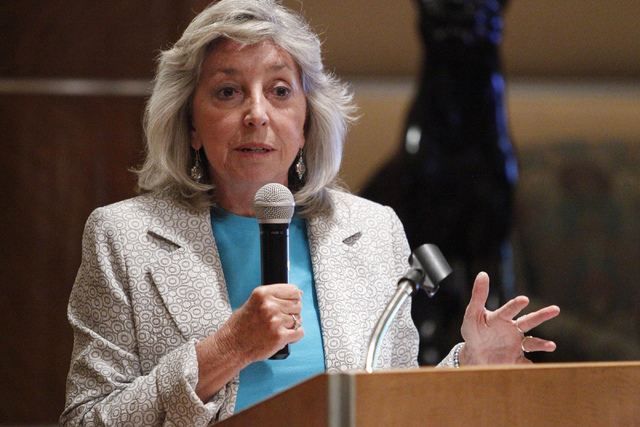VA braces to bust its budget

WASHINGTON — The Veterans Affairs Department is bracing to bust its budget this year, partly because it has underestimated the demand for care in places like Las Vegas, a House panel was told Thursday.
Failure to predict workload increases in cities where more veterans are coming forward for services was just one of the reasons the VA is facing a $2.6 billion shortfall this year, officials told lawmakers.
The VA has handled almost 3 million more appointments in the aftermath of scandal last year that found waiting lists were being manipulated to hide long waits for veterans to see doctors. The department expanded its capacity but still is being outstripped by demand.
“Clearly we are improving access, providing more care to more veterans. But the challenge is even more veterans are coming to VA for their care,” Deputy Secretary Sloan Gibson told the House Veterans Affairs Committee.
Costs for effective but expensive new drugs for hepatitis C also have overwhelmed the VA’s budget. And millions more veterans have been added to the medical rolls as the VA has pushed to speed processing of disability claims and appeals.
Gibson said the department also continues to be hampered by outdated technology that makes it difficult to predict demand and apportion resources.
“We are running the largest health care organization in the country on a 20-year-old financial management system,” Gibson said.
The VA is facing a 10.5 percent workload increase while its budget in the past year was increased only 2.8 percent, according to an internal document examined by the Las Vegas Review-Journal
In Southern Nevada, Gibson said the number of veterans receiving care since the new North Las Vegas VA Medical Center opened in 2013 has jumped 18 percent. In Phoenix, where the waiting list scandal first surfaced, the workload is up 11 percent while appointments for specialty care increased 16 percent.
At the hearing, Rep. Dina Titus, D-Nev., said it was not news that the number of Las Vegas veterans seeking care at the new medical center greatly exceeded expectations. The hospital’s emergency department already is being expanded.
Titus said the VA “doesn’t have a very good way to plan for demographic shifts or geographic shifts.
“I’ve been saying from the first day I worry about places like Las Vegas where the demand is increasing,” she said.
Congress now needs to find money to prop up the VA for the remainder of the year.
Titus said she will vote against one proposal that would allow the department to cut budgets by 1 percent across the board and redirect the savings into fixing the shortfall.
“I think that is a bad way to do budgeting,” she said. “I think you have to look at where you need the money and where you don’t. When the time comes I cannot cut other veterans benefits across the board.”
Rep. Dan Benishek, R-Mich., said the fiscal crisis doesn’t reflect well on VA Secretary Robert McDonald, who was confirmed in the summer to fix the department.
Gibson said it would not be fair to blame McDonald.
“Changing an organization like the VA in less than a year, I don’t see how anybody could do that,” he said.